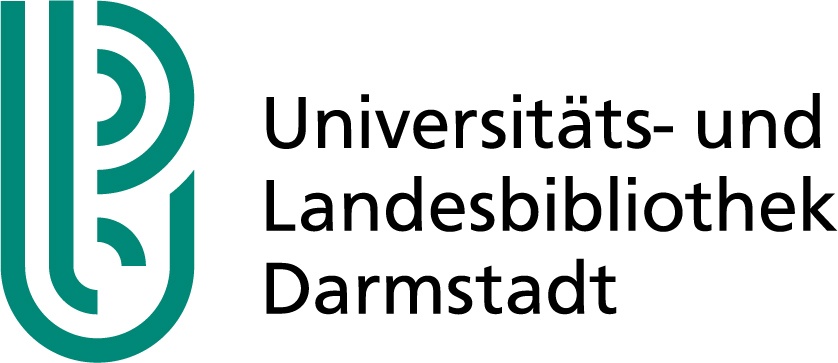Bürger:innen-Forum legt 23 Empfehlungen für weniger Lebensmittelabfälle vor
Die EU-Kommission hat ein europäisches Bürgerforum veranstaltet, bei dem Bürgerinnen und Bürger Vorschläge einbringen konnten, wie Lebensmittelabfälle in der EU stärker reduziert werden können. Am Ende von drei Beratungswochenenden legten die 142 Bürgerinnen und Bürger 23 Empfehlungen zur Reduzierung von Lebensmittelabfällen vor. Sie zielen darauf ab, die laufenden Bemühungen zur Verringerung der Lebensmittelverschwendung zu verstärken – durch mehr Zusammenarbeit in der Lebensmittelwertschöpfungskette, die Förderung einschlägiger Initiativen in der Lebensmittelindustrie und die Unterstützung von Änderungen im Verhalten von Verbraucherinnen und Verbrauchern.
Die Empfehlungen des Bürgerforums zu Lebensmittelabfällen werden die Folgenabschätzung und die offene öffentliche Konsultation ergänzen, die die Kommission im Rahmen der EU-Initiative zur Überarbeitung der Abfallrahmenrichtlinie mit verbindlichen Zielen für die Reduzierung von Lebensmittelabfällen durchführt.
Die Verringerung von Abfällen, insbesondere von Lebensmittelabfällen, ist Gegenstand eines Legislativvorschlags im Arbeitsprogramm der Kommission für 2023, der im Einklang mit der „Farm to Fork“-Strategie und den Vorschlägen der Konferenz über die Zukunft Europas steht.
Das Bürger:innenforum war das erste einer neuen Generation von Bürger:innenforen, die im Anschluss an die Konferenz zur Zukunft Europas ins Leben gerufen wurden. Die Foren sollen partizipative und beratende Verfahren in den politischen Entscheidungsprozess der Europäischen Kommission in Schlüsselbereichen integrieren.
Reaktionen der EU Institutionen auf die Ergebnisse der Konferenz
Feedback-Veranstaltung in Brüssel
Am 2. Dezember 2022 stellten die drei EU-Organe (Europäisches Parlament, Rat der EU und Europäische Kommission) den Bürgerinnen und Bürgern, die an den europäischen und nationalen Bürger:innenforen und Veranstaltungen teilgenommen haben, ihre Folgemaßnahmen zur Konferenz zur Zukunft Europas im Europäischen Parlament in Brüssel vor.
Das Programm ist online auf der Plattform der Konferenz verfügbar. Die öffentlichen Sitzungen der Veranstaltung wurden über das Multimedia-Center des Parlaments übertragen und hier gestreamt.
Die Europäische Kommission nahm am 17. Juni 2022 eine Mitteilung (in Englisch) an, in der sie Vorschläge der Konferenz auf ihre Machbarkeit hin analysiert und ankündigt, erste Initiativen aufbauend auf den Konferenzergebnissen in ihr Arbeitsprogramm für 2023 mit aufzunehmen.
Das Europäische Parlament forderte am 9. Juni 2022 den Europäischen Rat in einer Entschließung auf, einen Konvent zur Überarbeitung der EU-Verträge einzuleiten, um die Ergebnisse der Konferenz umzusetzen. Anliegen des Europäischen Parlaments sind hier insbesondere, bei Beschlüssen des Rates das Prinzip der Einstimmigkeit durch Mehrheitsentscheidungen zu ersetzen sowie die Befugnisse der EU in den Politikbereichen Gesundheit, Energie, Verteidigung sowie Soziales und Wirtschaft auszuweiten.
Der Europäische Rat nahm in einer Schlussfolgerung am 24. Juni 2022 Kenntnis von den Ergebnissen der Konferenz. Laut dem Rat müssen die EU-Organe im Rahmen ihrer jeweiligen Zuständigkeiten und in Einklang mit den Verträgen für wirksame Folgemaßnahmen zu den Vorschlägen der Konferenz sorgen.
Ergebnisse der Konferenz zur Zukunft Europas
Die Konferenz zur Zukunft Europas hat nach mehr als einjährigen Beratungen, Diskussionen, Debatten und der Zusammenarbeit in verschiedenen Bürger:innenforen ein Paket von 49 Vorschlägen und mehr als 320 Maßnahmen als Handlungsempfehlungen zur Fortentwicklung der EU vorgelegt.
Der 346 Seiten starke Abschlussbericht (wird in neuem Tab geöffnet)
der die Ideen der Bürger:innen für ein besseres Europa zusammenfasst, wurde am 9. Mai 2022 von den drei Ko-Vorsitzenden des Exekutivausschusses den Präsident:innen des Europäischen Parlaments, des Rates und der Kommission vorgelegt.
Hintergrund
Am 9. Mai 2021 ist die Konferenz zur Zukunft Europas eröffnet worden. Über eine mehrsprachige und interaktive Beteiligungs-Plattform wurden 20.000 Ideen geteilt und 178 Empfehlungen sind in den zahlreichen Europäischen Bürger:innenforen formuliert worden.
In einer abschließenden Sitzung, die vom 29. bis 30. April 2022 im Europäischen Parlament in Straßburg stattfand, erzielte die Plenarversammlung der Konferenz einen Konsens über ihre endgültigen Vorschlagsentwürfe (wird in neuem Tab geöffnet)
. Sie stützen sich auf die Empfehlungen der Europäischen Bürger:innenforen, der nationalen Bürger.innenforen und Veranstaltungen, den auf der mehrsprachigen digitalen Plattform erfassten Ideen (wird in neuem Tab geöffnet)
sowie den Diskussionen während der Plenarsitzungen und Arbeitsgruppensitzungen der Konferenz.
Weitere Informationen
EP-Hintergrundinformationen – „Die Konferenz zur Zukunft Europas“
Zeitleiste der Konferenz über die Zukunft Europas
Kostenlose Fotos, Video- und Audiomaterialien aus dem Multimediazentrum des Parlaments
























